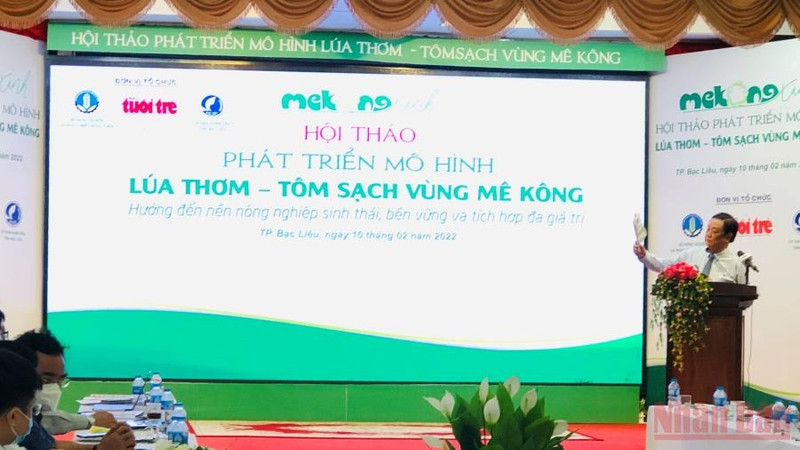On the afternoon of February 10, in Bac Lieu province, a workshop with the theme: Developing the model of "Clean fragrant rice-clean shrimp" in the Mekong region.
The model is expected to create a safe and stable ecosystem, environmentally conducive to sustainable shrimp and rice farming, with safe products to meet the needs of consumers and exports, as well as serve as a basis for expanding the rice-shrimp area, in the coming years throughout the region.
According to the Ministry of Agriculture and Rural Development, climate change has been affecting more than 17.3 million farmers, mainly smallholder farmers and the poor within the region. In particular, the Mekong Delta is assessed as one of the four deltas in the world, most affected by climate change and sea level rise.

Breeding shrimp using advanced techniques in Bac Lieu Province’s Hoa Binh District. (Photo: VNA)
The coastal provinces of Ca Mau peninsula have advantages in the production of organic agricultural products, thanks to the shrimp-rice, shrimp-forest and rice-fish ecosystems. If there is a good irrigation system, it can increase 100,000 hectares of shrimp-rice rotation and consolidate the existing rice-shrimp area, of about 150,000 hectares. Rice products in this region can also enter the market segment of specialty rice, with the highest price in the world market.
Many opinions of scientists, local leaders, businesses, cooperatives and farmers, believe that it is necessary to continue to exploit the effectiveness of the model, on the basis of research, to improve and perfect the technical process of rice and shrimp farming (from the design and improvement of production systems, operation techniques and management of water quality and the quality of farmed shrimp products) in the direction of improving quality, diversifying products and developing models in a sustainable manner. Breeding stock must be quarantined for quality, with clear traceability from specialised local management agencies.
On the other hand, more attention should also be paid to build and develop a rice-shrimp farming model that meets the criteria of quality certification. Products bearing the trademark “clean rice-shrimp” are convenient in supplying to customers, both at domestic and international markets.
















